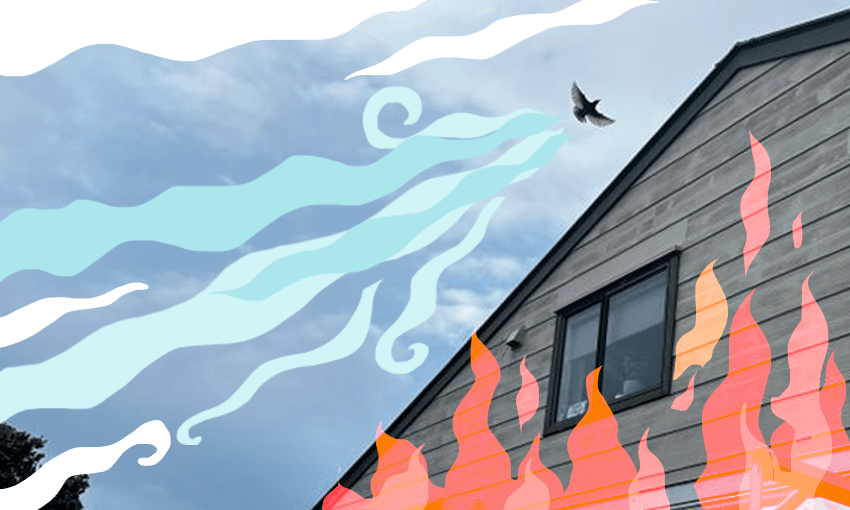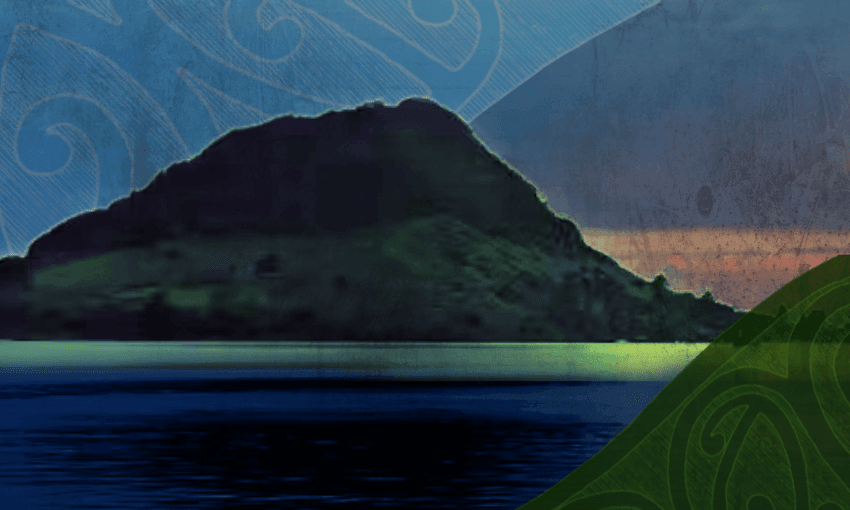Is this my nest or yours? What living with baby starlings has taught me about the true costs of climate change and the conscience of those who wield all the power.
There’s a nest of baby starlings living in the extractor fan vent inside my kitchen wall. I’m afraid to turn on the fan lest I blow them up in a kerfuffle of bloody feathers, but I also worry what kind of mess they’re making; what kind of mess they’ll leave behind when they fledge. If they fledge. Nothing’s ever guaranteed.
They were here last year, too. At the time, a visiting contractor warned me I should do something about it. Starlings are notorious for clogging up gutterings and creating a potential fire hazard. Not to mention the noise. Starlings are loud. They wake at 4.45am, starving and squabbling and squealing all the live-long day. At night, not a peep.
From the outside, a straggle of wet straw hangs from the hole and flutters in the breeze. The parents fly in and out, expertly tipping the plastic flap before disappearing inside the narrow cavity with their beaks full. They wake me before it’s light, but I keep them up all night, aided by the artificial sun on my ceiling that I can flick off and on with a switch, god-like. We know each other’s business and routines, these starlings and I, because they have made their nest inside of my nest.
Or perhaps I have made mine on top of theirs?
It was recommended I prevent access to the vent by covering it up with wire mesh, but imagine if you came home to find someone had boarded up access to your home with your babies trapped inside. More to the point, I wouldn’t know how. The vent is three stories high and I’d need scaffolding, or at the very least the skills of someone like my brother, a professional trained in maintenance at height. But since I can’t afford scaffolding and my brother is dead, the problem of the nesting starlings is just another thing I don’t know how to fix.
Besides, I can’t get over how smart and plucky these spotty introduced birds are. How adaptive. Our fortunes seem intertwined. They watch me get out of bed, pour brown liquid into my beak, before slipping out the door to dart around the block, returning half an hour later without so much as a twig or branch, let alone a worm. Sometimes they sit on the fence outside my office, head cocked, black eyes peering sidelong at me through the glass. They are not threatened by me, they are curious. What is it I do all day? My face is aglow in a bath of shimmering blue light; my ungainly claws tap monotonously against a thin strip of aluminium.
My brother used to say that my job was a pseudo-job, as in, a job that wasn’t real. Just a made-up way to legitimately distract myself and get paid for it. He couldn’t see evidence of the value of what I did all day. Mine are “soft skills.” I write and think and communicate for a living. I make phone calls and meet people and listen and, if I can, try to influence or sway those who sit near the people who sit near the people who have the ability to touch a finger to the levers of power.
My brother was a technician. His skills were concrete. My brother knew how things worked, and why they broke. He had an innate understanding of physics and engineering. He was the kind of person who would know how to prevent starlings from brooding in the extractor vent next to your kitchen window at an elevation of three stories.
We used to joke about it – about the seeming ineptitude of bureaucracy – and some days it seemed like a fair accusation. But other times he was genuinely scathing and I was genuinely defensive. This was especially true during Covid when I could work and he couldn’t.
One day, after a long day zooming around the country in my pyjamas, I collapsed on the couch and said that it’d been a hard day and he flashed me a look and said “Yeah? Did you get wet? Were you crawling around on your hands and knees up to your elbows in someone else’s shit before breakfast?”
It was difficult to argue with him because arguing with him would be like trying to convince my starling family that the activities that occupy me between the hours of dawn and dusk, let alone after dark, make any sense. We live under the same roof, but we occupy different worlds.
Last week, under a different roof in another time zone, a group of officials with soft skills talked and argued and debated and negotiated into the wee hours over several days and nights, until eventually a weary truce was drawn. In principle at least, it was agreed that countries that have been the most screwed over by the excesses of global capitalism should be compensated.
This was the big ticket item to come out of Cop27 in Egypt last week. The creation of a Loss and Damage fund is significant, because it represents the culmination of decades of work and sacrifice and pressure by activists and delegates from less wealthy nations, to force the rich and powerful to accept responsibility for the harm they’ve caused.
Loss and Damage is about responsibility and justice: it’s about who’s paying for climate change – literally, and financially. It’s about obliging those most responsible for the causes of global warming to foot the bill for the destruction they’ve set in motion: a tiny step towards standing up to the bullies in the playground who have knowingly inflicted harm on those who least deserve it.
Financial support to help vulnerable communities survive the catastrophic impacts of climate change is desperately needed and sorely overdue, but the loss and damage fund isn’t so much a material victory, as a moral and symbolic one. A shitty consolation ticket for a lottery you never wanted to enter is hardly a prize. I guarantee that indigenous communities the world over would rather have their land and their nests and their languages back than a paycheck.
Climate change may be considered an emergency today, but for indigenous people it’s just a continuation of what’s been in motion for centuries. Far preferable had the imperialists not alighted on foreign shores with their guns and wells and survey pegs to plunder and extract and bleed the languages from the throats of our ancestors.
The New Zealand government announced $20 million dollars towards this global fund, a tiny spit in the ocean, but how much is it really worth if the mining and the burning is set to continue unabated? The power to turn on the extractor fan is at my fingertips.
Besides, no pot of money will fix everything. Or even many things. Like the Waitangi Tribunal that was set up to compensate iwi and hapū for loss and damages suffered under successive colonial governments, unless there’s genuine, concurrent commitment to stop doing the bad things that caused the harm in the first place, we can’t take seriously the intention to address the root source of the problem. It’s just creating an industry out of damages which future generations will have to repair.
And just imagine the amount of administration and layers of bureaucracy and soft skills required to disperse those billions of global dollars! I almost couldn’t get out of bed from exhaustion just thinking about it. My starlings certainly didn’t give a squark. They’re too busy watching the horizon and keeping track of Stevie, the calico hunter from next door.
Recently, Ruia Aperahama explained the concept of the Māori word “utu” to me as reciprocity. The idea that, if you take something, you must return something of equal or more value. The knowledge that someone or something may suffer as a result of some action or inaction ought to guide your behaviour. The loss and damages fund isn’t getting anywhere near this kind of logic. Indigenous logic. Loss and damages is an economic concept. A made-up idea, with very real, very material consequences.
We don’t really occupy different worlds, the starlings and me. We share this house. The mess and hazard isn’t theirs. They are not the pest. They’re just adapting to the land in which they’ve found themselves, and the structures humans have imposed here. Like rich countries and poor countries, our futures are intertwined upon this one earth. What we occupy is different imaginations. Different ideas about what’s meaningful and valuable and logical and fair. Ultimately, we may want the same things – shelter, food, protection, the continuation of whakapapa. But we are not equally guaranteed of it.
If I’m honest, the only thing really stopping me blocking up the vent is my conscience.
This is Public Interest Journalism funded through NZ On Air.





